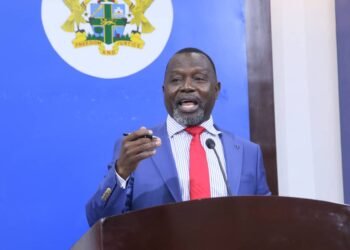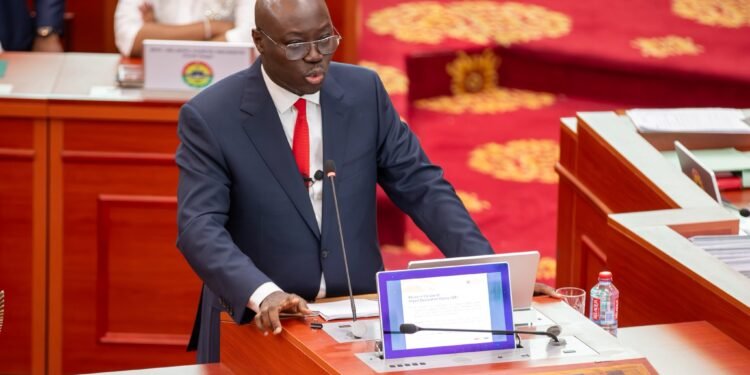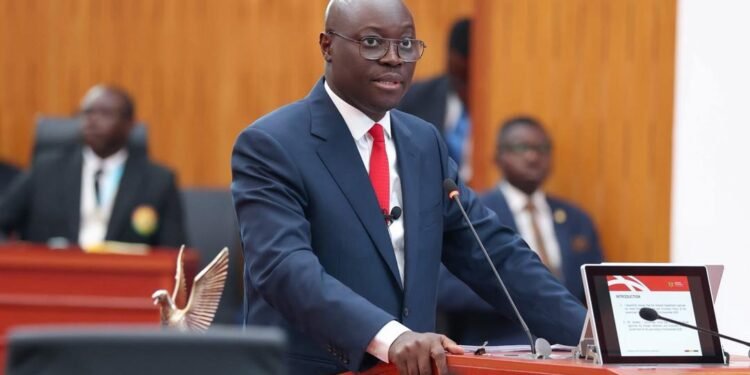The global aid system is facing one of its most significant reckonings, as the United States moves toward freezing international aid and dismantling the United States Agency for International Development (USAID).
While the world grapples with the consequences of this seismic shift, policy analyst and Honorary Vice President of IMANI Centre for Policy and Education, Bright Simons, in a detailed analysis underscored what this means for humanitarian efforts, the shifting geopolitical landscape, and developing nations like Ghana.
“I worry about coming across as trying to intellectualise a situation that for many millions involves real life and death stakes. On reflection, however, I feel that the fear of humanitarian carnage due to the actions of a single president, albeit of the World’s only superpower, creates the right mood for fundamental questions to be asked about the global aid system. I dare say that Trump is hardly the sum of that system’s ills”.
Bright Simons, Honorary Vice President IMANI Centre for Policy and Education
According to Bright Simons, much of what is being discussed in aid policy circles is based on naive pragmatism.
For him, the idea that this crisis will expedite the rise of a multipolar aid system—where emerging powers like China, Russia, and the Gulf states play a greater role—is a misinterpretation of the dynamics at play.
He pointed out that these rising powers have little to no interest in the classical aid model that has dominated for decades. Instead, they see aid as an explicit tool of foreign policy, a stark contrast to the multilateral, development-first model championed by institutions like the UN and the EU.
The Decline of the Classical Aid Model
Bright Simons’ analysis centres on the recognition that the classical aid model—in which development cooperation is multilateral and framed within global blueprints such as the UN Sustainable Development Goals (SDGs)—is under siege.
Countries that have historically contributed to this model, such as Greece, continue to be bound by EU norms that mandate a multilateral approach to aid. However, wealthier non-Western states like Singapore and the UAE, which are richer on a per capita basis than many European nations, do not adhere to this paradigm.
Bright Simons says their aid is transactional, designed to serve their direct national interests rather than broader global development goals.
“My view is that if the world is going multipolar, then the future of government-driven aid is more in the direction of the Chinese, UAE & Singaporean models. Of course, these countries won’t have a legacy system to gut with all the gore we are seeing in the US.”
Bright Simons, Honorary Vice President IMANI Centre for Policy and Education
Bright Simons further argued that the United States’ shift under Trump and his political allies, such as Senator Marco Rubio, is not a deviation but an attempt to align with the transactional aid model long practised by China, the Gulf states, and other non-Western powers.
He emphasized that rather than championing development for its own sake, aid is now increasingly being seen as a direct instrument of foreign policy influence.
Ghana and the Changing Aid Landscape
For Ghana, and by extension many African nations, these shifts carry profound implications. Bright Simons cited the Pwalugu dam project, which was awarded without competitive tender to a major Chinese firm under the assumption that Chinese development funds would follow.
He pointed out that five years later, after substantial advance payments, the project site remains abandoned because the Ghanaian government failed to provide the required counterpart funding.
This, Bright Simons argued, illustrates the responsibility that comes with an agency in a world where development aid is no longer freely given but must be strategically managed.
“It is not only “skin in the game” logic that will rise with the fall of the classical aid paradigm, the emphasis will also shift away from multilateral coordination, long the coveted holy grail of the classical aid era.
“In 2021, there were 565 major global actors in this arena, almost triple the number in 2000. The areas of interest for international development cooperation have also multiplied multifold. In 2019, there were nearly 223,000 transactions.”
Bright Simons, Honorary Vice President IMANI Centre for Policy and Education
The result is an unwieldy, complex system where coordination is collapsing under its own weight.
Bright Simons warned that if this trend continues, developing nations must prepare for an environment where the burden of oversight, prioritization, and efficiency in aid management falls entirely on them.
The Accountability Crisis in Developing Nations
One of Bright Simons’ most pointed critiques is directed at developing countries themselves, asserting that in many of these nations, weak political accountability and poor prioritization mechanisms undermine the effective use of aid.
As global development financing shifts from multilateral governance to country-specific foreign policy-driven investments, the risk of waste, inefficiency, and outright corruption increases.
Without stringent governance criteria to regulate development projects, countries that fail to build strong domestic accountability structures will struggle to harness aid for meaningful progress.
This is why, according to Bright Simons, developing nations must stop passively awaiting a so-called ‘post-imperial, agency-driven, multipolar aid system.’
Instead, they must actively work to ensure that development spending is transparent, well-coordinated, and free from political mismanagement.
In the absence of universal governance standards, responsibility for the effective use of aid funds falls squarely on national governments and civil society actors.
The classical aid system, for all its flaws, provided a degree of predictability and structure. As that model crumbles, Bright Simons warned against the naive assumption that its collapse will be smooth or beneficial.
A world where every major power pursues transactional aid strategies may bring about a more ‘realistic’ order, but it will not necessarily be a better one for developing nations.
For Ghana and other African countries, the message is clear: the era of easily accessible, multilateral aid is fading.
The burden of ensuring that development funding achieves its intended goals now lies with national governments and local watchdogs. If they fail to step up, the consequences will be dire.
READ ALSO: Lands Minister Leads Renewed Fight Against Galamsey























